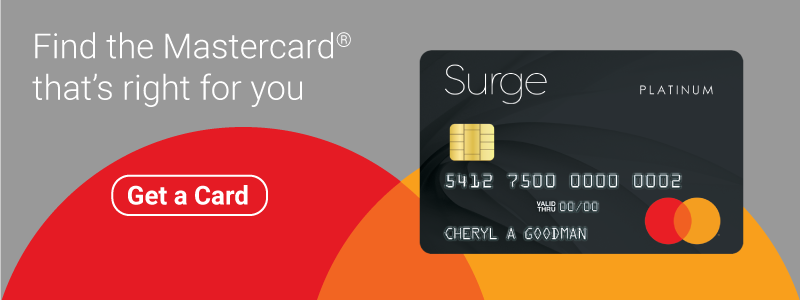You just opened up your mail. And in that, you received two different credit card offers.
One says: You’re Pre-Approved!
The other says: You’re Pre-Qualified!
You scratch your head. What’s the difference between the two?

At a quick glance, both mean almost the same thing, and both are very good. But one distinction carries a bit more weight than the other.
In this article we will cover:
- What does pre approved credit mean
- What does prequalify for credit mean
- The difference between prequalified and preapproved
- Does prequalification affect your credit score

So what does pre approved credit mean?
Pre-approved vs. pre-qualified credit cards is a confusing question that comes up often for people who are interested in getting a new credit card.
At its core, these terms have to do with the fact that lines of credit are essentially loans. And that means there is a small difference between loan preapproval and prequalification.
Neither guarantees loan approval, but if someone says a person is pre-approved or that they are pre-qualified, then a key first step in the process of obtaining a loan. This holds true whether you’re in the middle of the mortgage process applying for a home loan or you are filling out an online form to apply for a credit card.

Pre-Qualified Credit Cards
The first thing to know is that whether it’s a pre-approved credit card offer or a pre-qualified credit card offer, a person is not guaranteed to receive the credit card. The big difference in the terminology has to do with the process of how the credit card marketer makes their decision.
Qualifying for a loan has many checks along the way and requires due diligence by credit card companies and credit bureaus. These checks of an applicant’s information are to alleviate risk.
But credit cards are a very competitive market so being able to give a potential customer some assurances that they are the type of candidate the credit card marketer is looking for goes a long way toward getting more people approved.
So what a company typically means when they say a person is “pre-qualified” for an offer is that the person has characteristics that the credit card company knows fit what they are looking for. The most common characteristic used to judge a pre-qualified offer is a person’s credit score.
This is one of the top reasons why having a good credit score is important. Each month a thee major credit bureau (the three major credit bureaus are Experian, Equifax, and Transunion) receives information about peoples’ financial activity.
This credit reporting adjusts a person’s score regularly. The better a person’s score, the easier it is for them to qualify for loans, and consequently, more credit.
A pre-qualified credit card offer means at the time of the offer a person’s credit score falls in a particular range or has some other characteristic such as “no delinquent payments in the past 12 months.” Because that person’s credit history matches that characteristic they are one step closer to being approved and that puts the person on a list of people who are now pre-qualified to receive the offer.
But the caveat here is that there is zero guarantee that when the same person who pre-qualified for the offer gets around to filling out an application for the credit card offer, they will pass the approval process. Which leads us to …

Pre-Approved Credit Cards
To define a pre-approved credit card offer is simple. Pre-approved offers are most often just one more step further in the application process. And that’s it.
A person who receives a pre-approved credit card offer has been targeted for that offer because the credit marketer has taken a closer look at the person’s financial characteristics.
One of the most common ways to do this is through a soft inquiry or soft pull of a person’s credit history. In our previous article, a guide on how to earn a credit limit increase, we described what a soft pull is:
“A soft inquiry will not affect your credit score. A soft pull is an inquiry that appears only on the version of your credit report you can see.”
Greg Knotts, Continental Finance Company
Because the credit card company has more information available when they make a pre-approved offer, there is a stronger chance a person will be approved for the credit card when they complete the application.
But it’s still not a guarantee. The pre-approved credit offer means a person’s information fit the characteristics the credit card company was looking for at the time they collected the data. But because it takes time for offers to be mailed and/or e-mailed to prospective customers, and then more time for those prospective customers to respond, characteristics can still change.
It could be weeks or even months before a person replies to an offer. And credit history can change radically in that short amount of time. Significant changes to an applicant’s credit situation can lead to altering the terms the person is offered or disqualifying the person from any offers.

Why is the difference between preapproval and prequalification important?
For all practical intents and purposes, the difference between a pre-approved offer and a pre-qualified offer is minimal. It likely will have zero impact on terms that matter, such as the loan amount or the interest rate of the offer.
The only distinction is a pre-approved offer is made with slightly more information on hand, and so a person’s financial characteristics fit the offer a little bit better. This means that a pre-approved offer is one tiny step closer to approval.

Should you choose a preapproved or prequalified credit card?
This is mostly up to the individual and the timing of the offer. If a person is seeking a new credit card or a credit card with better terms than their current lines of credit, then a pre-approved or pre-qualified credit card offer could be the perfect solution.
But the offer isn’t guaranteed. And there are many other ways to find a new line of credit.

Will prequalification affect your credit score?
A pre-qualification credit check does not typically affect a person’s credit score. As explained above, there’s no hard inquiry made on a person’s credit history. Pre-qualified offers usually target just a range of scores or some other characteristic that does not require a detailed analysis of a person’s credit information.
Continental Finance Company, for example, runs a pre-qualified offer online. It’s a very simple process that will not affect a person’s credit score at all:
- Step One: Go to the offer page.
- Step Two: Fill out the pre-qualification form to check on the offer you are made.
- Step Three: A soft inquiry is made to find the offer that best fits your characteristics
After that, an offer is made. When a person accepts that offer, that’s when a person’s credit score is affected. This is part of the final stage of the application. And a hard inquiry is made to finish the application.

People Also Read
- How to Stay in Your Financial Lane
- Using Secured Cards to Build Credit
- Free Rent Reporting Can Boost Credit
Continental Finance is one of America’s leading marketers and servicers of credit cards for people with less-than-perfect credit. Learn more by visiting ContinentalFinance.net

